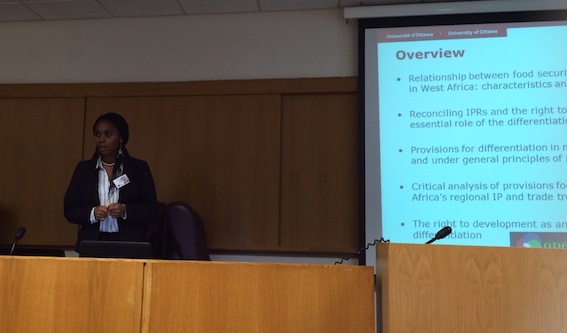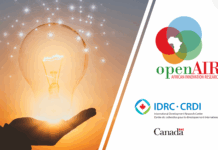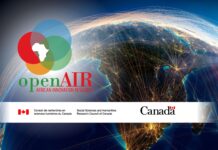Cross-posted from U of S Plant Phenotyping and Imaging Research Centre
By Uchenna Ugwu
Can you tell me a bit about yourself?
I am a PhD student at the University of Ottawa. I received my Masters in Public International Law in England at the University of Leicester. I currently focus on international intellectual property law and how the development of recent agreements impact food security in African countries.
Can you provide a brief summary of your research?
My research looks at one of the recent regional trade agreements made by West African countries – within their own union called the Economic Community of West African States or ECOWAS. This group has made a recent agreement with the European Union. I look at these intellectual property agreements and the implications and impact on food security in West Africa. I then formulate a framework for intellectual property and how to develop an intellectual property regime in order to achieve our objectives for food security.
Why is intellectual property important to food security?
IP plays an important role in encouraging innovation and technology transfer. Phenotyping and agronomic technology have the potential to be very important to improving crop production and food security, however this potential can only be realized if these technologies are accessible and can be used by those who will benefit them.
IP regulations dictate how such innovative knowledge may be accessed, used, and transferred across borders. As a result, IP laws may prevent access to knowledge by small and medium scale farmers essential for improving crop production and breeding new varieties. There is a lack of consensus about the optimal strength of patents, plant breeders’ rights, or breadth of defenses necessary for maximizing technology transfer and agricultural innovation. This makes it imperative to adapt the frameworks for IP protection suitable to different countries and sectors.
My research offers insights on how IP regulations can be formulated to encourage access to knowledge, technology transfer, and facilitate the creation of new customized agricultural technologies, in a manner that is affordable to African countries. This expands knowledge on the P2IRC objective of understanding how to leverage the power of digital phenotyping and genomics for plant breeding.
How did you become involved in the P2IRC project?
I became involved in P2IRC through the Open African Innovation Research Group (Open AIR). It is ahead in issues regarding African food security and intellectual property. This project has a lot of potential and is very relevant because food security is an important issue in African countries.
What do you enjoy most about your research?
The potential to bring about a policy change. I think I can positively contribute to making a difference – not just discovering information but making changes that truly make a practical difference in people’s lives.
Why is your project important? What are some potential applications of your project?
Right now, there is very little research regarding West Africa in this area, so my research addresses a gap. While there is some research regarding Africa as a whole, Africa is very diverse so I have chosen to focus on West Africa. In the area of IP, this economic partnership agreement has yet to be analyzed in relation to food security issues. ECOWAS is trying to create a free trade area and needs some direction regarding which policies will benefit them and potential issues in that area. Building this framework could be helpful for development of further policies, laws, and regulations.
What is one of the most interesting findings that you’ve had to date?
First of all, international law is much more flexible than we initially thought; there is more room within it to do more than expected.
As well, we initially thought that regional agreements would be more friendly and supportive of food security in West African than multilateral agreements with multiple countries involved. But the most dramatic finding we’ve had is that regional and bilateral agreements are harsher towards food security agreements than multilateral agreements are. This is a big surprise, because we assumed the African union or ECOWAS would take their own interests into consideration more.
How have you grown or developed as a professional because of your research?
This research has helped me improve my writing skills. I’ve learned to not think in a box but have a wider view. As well, I’ve learned how to present in a logical manner so that others can understand. You may have lots of facts and ideas, but people will not understand unless you present them logically.
Which research accomplishments are you most proud of?
So far, I’ve been happy to publish and present my work. I have published my work in several peer reviewed journals over the past couple years. Last year I presented my work and had the opportunity to discuss it with others at conferences in Windsor and South Africa.
Research Gate: Uchenna Felicia Ugwu










